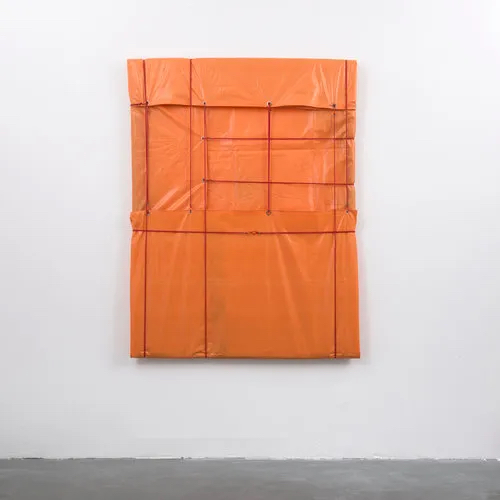#MEETTHEARTIST Mano Penalva
During Art Rotterdam, you will spot the work of hundreds of artists from all over the world. In this series, we highlight a number of artists who will show remarkable work during the fair.

Brazilian artist Mano Penalva studied social communication and social sciences in Rio de Janeiro, with a specialisation in anthropology. In addition, he followed seven years worth of art courses at the Escola de Artes Visuais. Above all, he is fascinated by material culture: an umbrella term that is used in various fields, including anthropology, to refer to the total of tangible objects from contemporary cultures and cultures from the past. How are these products made, distributed and used?
The artist investigates this material culture in relation to behavioural changes and globalisation. He particularly prefers everyday objects that have been converted into commodities and are both local and global in character — as a result of an increasingly intensified, industrialised and internationalised production process. Penalva is interested in the ways in which objects and images are distributed around the world in an exponential fashion. This exchange can also reveal something about the socio-economic and cultural reality of a particular people or an underlying colonial history.
Penalva collects everyday objects that he finds on the street or during his many trips to major world cities, especially at popular street markets. For earlier works, the artist has used the tarpaulin that is used in these stalls. He collects and buys materials such as embroidery, appliqué patches, nets, jute bags, nylon strips, hooks, brushes and seat belts. For a recent series from 2021, Penalva used raffia packaging bags that are used for things like flour, fertilizer, mail and brown sugar.
The artist then appropriates these examples of material culture, after which he removes them from their original context in order to arrive at new, poetic meanings. Sales strategies also play a role in this. For example, for the work “Maiz”, Penalva made a corn cob out of Cheetos (chips), the size of a popular type of corn that is sold in Mexico, but is imported from the United States. He photographed that object and then printed 3,000 postcards of it, which he distributed to local souvenir sellers in Mexico City. They were allowed to keep the proceeds of the sale. The artist wants to say something about material culture, but also about the effects of globalisation.
For his practice, Penalva works in a variety of media, including painting, photography, video, sculpture and installation. His work is sometimes identified with Brazilian culture because he makes extensive use of characteristic local items, but by offering new applications, he removes the boundaries of the material. The artist is also intrigued by the idea that an object or word can have different meanings in different cultures. He searches for objects that transcend these boundaries and thus become a symbol for globalisation, after which he places them in a new context. A recurring theme is the contrast between (private) domestic life and the more ephemeral (public) life on the street, and the ways in which these influence our values and habits.
In recent years, Penalva has completed residencies in Mexico, Miami, Brussels, New York and Brazil. His work has been exhibited worldwide, including in Brussels, Mexico, Barcelona, Venice, Paris and New York. During Art Rotterdam, the work of Mano Penalva will be on show in the booth of Galerie Felix Frachon.


